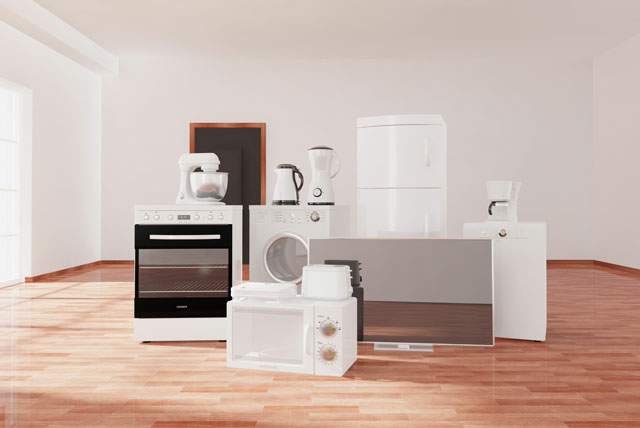
Large appliances, like washing machines, dryers, fridges, and ovens, are likely to be some of the most expensive items that you own. When you’re moving overseas, it can be difficult to decide what to do with them. Should you sell them before you leave or ship them to your new home abroad? Here are some points to consider when making your decision.
There Any Outlet Differences?
Depending on the place that you’re moving to, the power outlets may be incompatible with your old appliances. The power outlets used in Australia and New Zealand vary dramatically from those used in the United States, which are different again to those used in parts of Europe, Asia, and Africa. Plug adaptors, which plug into an appliance’s cord, are readily available at luggage shops and airports, but they may not solve the problem.
Even if you can plug your appliance in, it doesn’t mean that you should. Voltages also vary across the world. If you use an adapter to plug your appliance into a foreign outlet, it may become damaged. Read what’s printed on your appliance to see whether it supports the voltage used in your new home. You can learn what the correct voltage for each country is by consulting Wikipedia’s table of plug types and voltages used in countries around the world.
Do Your Appliances Have Valid Warranties?
If you’re considering taking your appliances overseas, it’s smart to consider whether they’ll still be covered under your warranty. Some goods carry international warranties, so they can be serviced under this document anywhere in the world. Read your warranty carefully and see whether there are service limitations. If you’re unsure about this, contact the manufacturer.
Even if you’re not covered under warranty, ask whether the manufacturer has an international division that could supply parts and perform repairs overseas if required. If there is a foreign branch near your new home, you’ll have peace of mind knowing your appliance could be easily repaired if things go wrong. Otherwise, you’ll need to consider the needless expense of shipping an appliance that may require costly repairs in the future, if it can be fixed at all.
How Large Are Your Appliances?
The size of your appliances may be another consideration. There’s no point spending money shipping an appliance that simply won’t work in your new space. For example, the double oven that has pride of place in your kitchen may not be compatible with the much smaller kitchens in many European homes.
If you know where you’ll be living, see if you can get a floor plan of your new place showing its dimensions. This will help you make a more informed choice. If this isn’t possible, you could do some online research to see what space is typically available in properties in your new country.
What About the Costs?
You’re definitely not going to get the original retail value if you sell your appliances at home. However, the cost of shipping bulky items like fridges and ovens can be substantial. Most professional moving companies will provide quotes, so you can consider the costs before you make your decision. Removalists like Chess Moving, who have experience with international moving, may also be able to offer their insight into moving with appliances.
When considering costs, it’s also smart to consider how much you’ll need to replace your appliances once you arrive in your new home. If you’re moving to America, you might be surprised how affordable white goods and electrical appliances are. However, the same goods in some other countries can cost much more than they do in Australia. It’s a good idea to browse the websites of popular retailers in your new home to get a guide of how much you can expect to spend on new goods. Remember to take into account currency conversions when assessing the prices.
Do You Really Want to Buy Later?
Moving into a new place without major appliances like fridges, ovens, and washing machines can be a real hassle. If you decide to buy once you arrive in your new home, you’re going to need to do it fast, probably before you’ve had time to acclimatise to your new surroundings.
That could be challenging, particularly if you’re moving to a part of the world where they speak a foreign language. Even if you are fluent in the dialect, you could suffer the dreaded “tourist tax” and pay much more than someone who’s lived in the area longer might. You might also be disappointed with the returns policy, which may not be as comprehensive as those in Australia. Can you be sure you’ll make a good decision and get a good deal under those circumstances?
As you can see, the decision about whether to move large appliances overseas requires careful consideration. Will you ship them or sell?